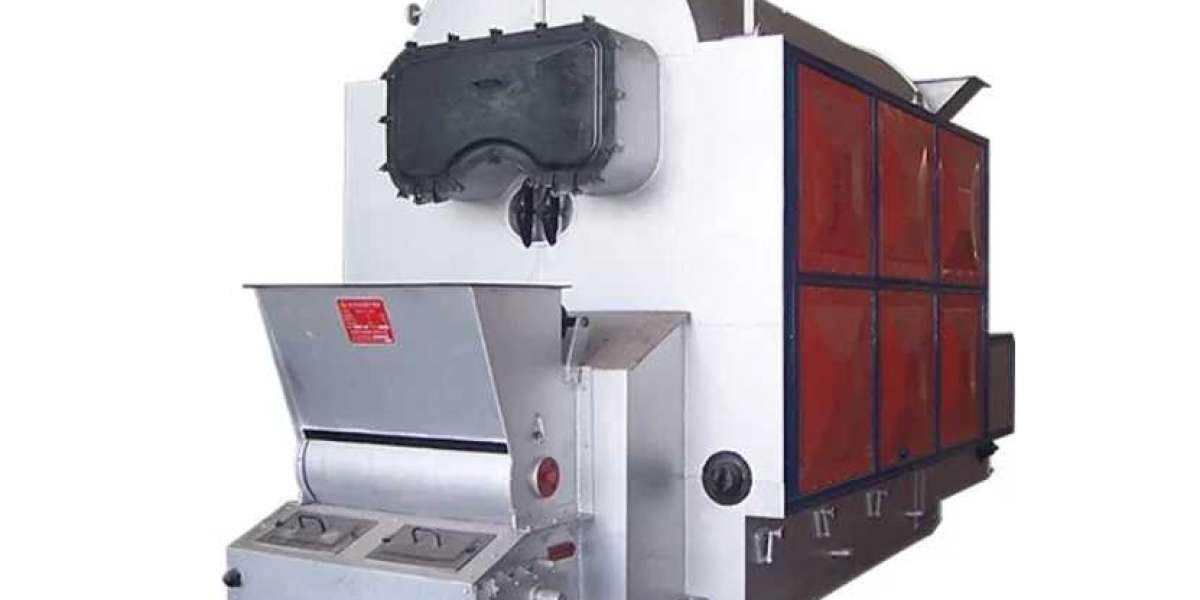In recent years, there has been a growing interest in renewable energy sources as a means to combat climate change and reduce dependence on fossil fuels. Biomass, derived from organic materials such as wood, agricultural crops, and waste, has emerged as a promising alternative for energy production. Biomass boilers, specifically designed to burn biomass fuels, have gained significant attention due to their potential to generate heat and electricity in a sustainable and environmentally friendly manner. This article aims to explore the functionality of biomass boilers in energy production, highlighting their advantages, challenges, and potential applications.
What are Biomass Boilers?
Biomass boilers are heating systems that utilize biomass as a fuel source to produce heat or electricity. They are designed to burn organic materials, such as wood pellets, wood chips, or agricultural residues, in a controlled combustion process. The heat generated from the burning biomass is then used to heat water, which can be distributed through a network of pipes to provide space heating or converted into steam to generate electricity.
Types of Biomass Boilers
There are various types of biomass boilers available, each with its own unique design and functionality. Some common types include:
Stoker Boilers:
Stoker boilers are the most common type of biomass boilers. They feature a grate system that continuously feeds biomass fuel into the combustion chamber. The fuel is burned on the grate, and the resulting heat is transferred to the water or steam.
Fluidized Bed Boilers:
Fluidized bed boilers use a bed of inert material, such as sand or limestone, to support and mix the biomass fuel. The fuel is suspended in a stream of air or gas, creating a fluidized bed. This allows for efficient combustion and reduces emissions.
Pellet Boilers:
Pellet boilers are specifically designed to burn wood pellets, which are compressed biomass materials. They offer automated fuel feeding and combustion control, making them highly efficient and user-friendly.

Advantages of Biomass Boilers
Renewable and Sustainable:
One of the key advantages of biomass boilers is that they utilize renewable and sustainable fuel sources. Biomass, unlike fossil fuels, can be continuously replenished through responsible forestry practices and agricultural waste management. This makes biomass boilers a viable long-term solution for energy production.
Reduced Carbon Emissions:
Biomass boilers produce significantly lower carbon emissions compared to traditional fossil fuel boilers. While burning biomass releases carbon dioxide, the carbon emitted is part of the natural carbon cycle, as the biomass fuel absorbs carbon dioxide during its growth. This results in a net-zero carbon impact, making biomass boilers an environmentally friendly choice.
Energy Independence:
By utilizing locally sourced biomass fuels, biomass boilers can contribute to energy independence. This reduces reliance on imported fossil fuels and strengthens local economies. Additionally, biomass boilers can be integrated with other renewable energy systems, such as solar panels or wind turbines, to create a more resilient and self-sufficient energy infrastructure.
Waste Reduction:
Biomass boilers can effectively utilize agricultural residues, forest residues, and other organic waste materials as fuel sources. By converting these waste materials into energy, biomass boilers help reduce landfill waste and promote a circular economy.

Applications of Biomass Boilers
Residential Heating:
Biomass boilers can be used for residential heating, providing a sustainable and cost-effective alternative to traditional oil or gas boilers. They can be integrated into existing heating systems and offer homeowners the opportunity to reduce their carbon footprint while enjoying reliable and efficient heating.
Industrial Heat and Power Generation:
Biomass boilers are well-suited for industrial applications, such as district heating systems, manufacturing processes, and power generation. They can provide heat and steam for various industrial processes, reducing reliance on fossil fuels and lowering operational costs.
Combined Heat and Power (CHP):
Biomass boilers can be integrated with a combined heat and power system, also known as cogeneration. This allows for the simultaneous production of heat and electricity, maximizing energy efficiency and reducing overall energy costs. CHP systems are particularly beneficial in industries with high heat and electricity demands, such as hospitals, universities, and large-scale manufacturing facilities.

Conclusion
Biomass boilers have proven to be a highly efficient and sustainable solution for energy production. By utilizing organic materials such as wood pellets, agricultural waste, and dedicated energy crops, these boilers offer a renewable alternative to fossil fuels. With their ability to generate heat and electricity, biomass boilers play a crucial role in reducing greenhouse gas emissions and combating climate change. Furthermore, their versatility and adaptability make them suitable for a wide range of applications, from residential heating to industrial processes. As we continue to explore and invest in renewable energy sources, biomass boilers will undoubtedly play a significant role in our transition to a greener and more sustainable future.






